Unleash Midjourney's magic... A creative workflow for themed image generation
Generative AI is transforming creative digital design. Identifying and optimising workflows with existing AI tools are essential for staying ahead of rapid developments in the field 📈.
In this blog post, I’ll share my workflow to create consistently stylised assets with Midjourney featuring my favorite New Zealand deserts. This workflow can be used throughout digital design from storyboarding, stock image generation, icons, and much, much, more… ✨



1) Seed a consistent style prompt
To ensure a consistent theme between images… you need consistent prompts. Crafting a prompt that’s stylistically specific, yet general enough to cover your subjects can be difficult if you don’t have prompt engineering experience. That’s where your favorite LLM (Claude, ChatGPT) can help!
Input:
Prompt:
2) Tweak your prompt
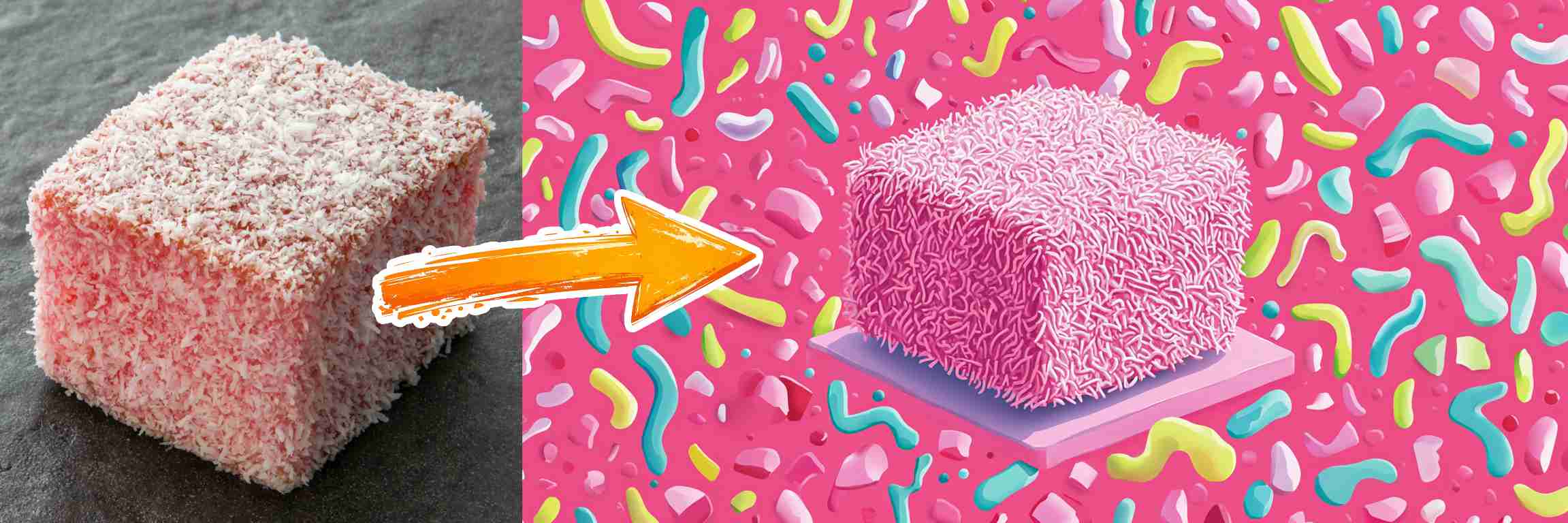
A LLM should get you to a good stylistic starting point, but you’ll have to adjust until you get something close to your target aesthetic. Mine ended up being… a bit too bizarre for me, and in my case meant removing abstract references and adjusting some terminology:
3) Upload reference images
I find Midjourney isn’t great with specifics. I had exact positioning in mind, and although the technology is constantly improving, prompts like ‘on the left side’ or using specific colors can be a surprising challenge.
Since I knew exactly how I wanted the subject to be positioned, I did a quick sketch:
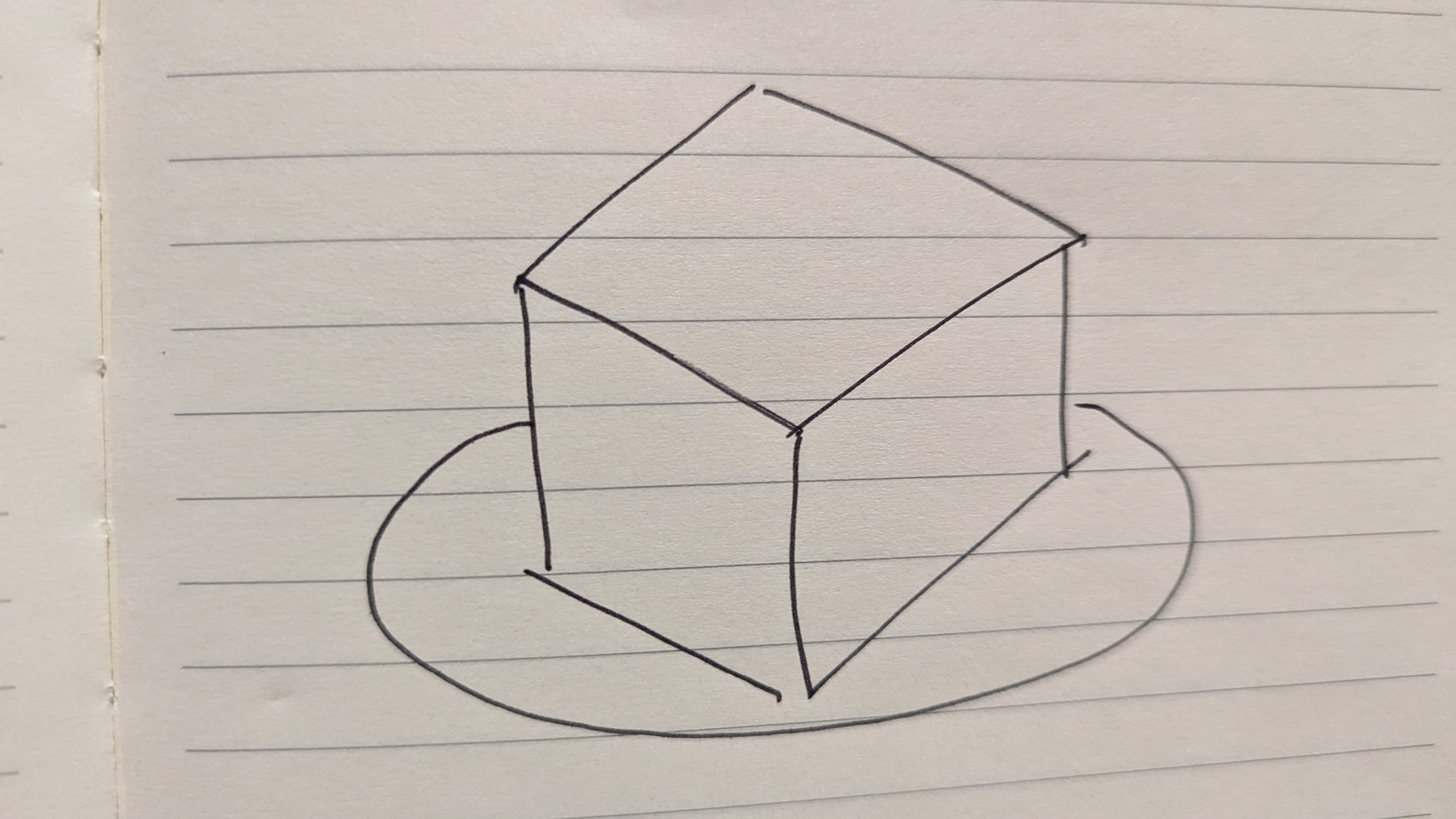
I included the lined paper as it could add an interesting stylistic element. Ultimately this is a creative workflow, which often requires creative solutions!
The new Midjourney web platform (Midjourney.com) is a lot more accessible compared to the original Discord. One of the benefits is that it is super easy to upload images with an icon directly in the search area.

4) No cream please! (Optional)
Midjourney was fixated on generating a Lammington with a cream dolop on the top, and while a lammington has cream, it’s not a visual feature.
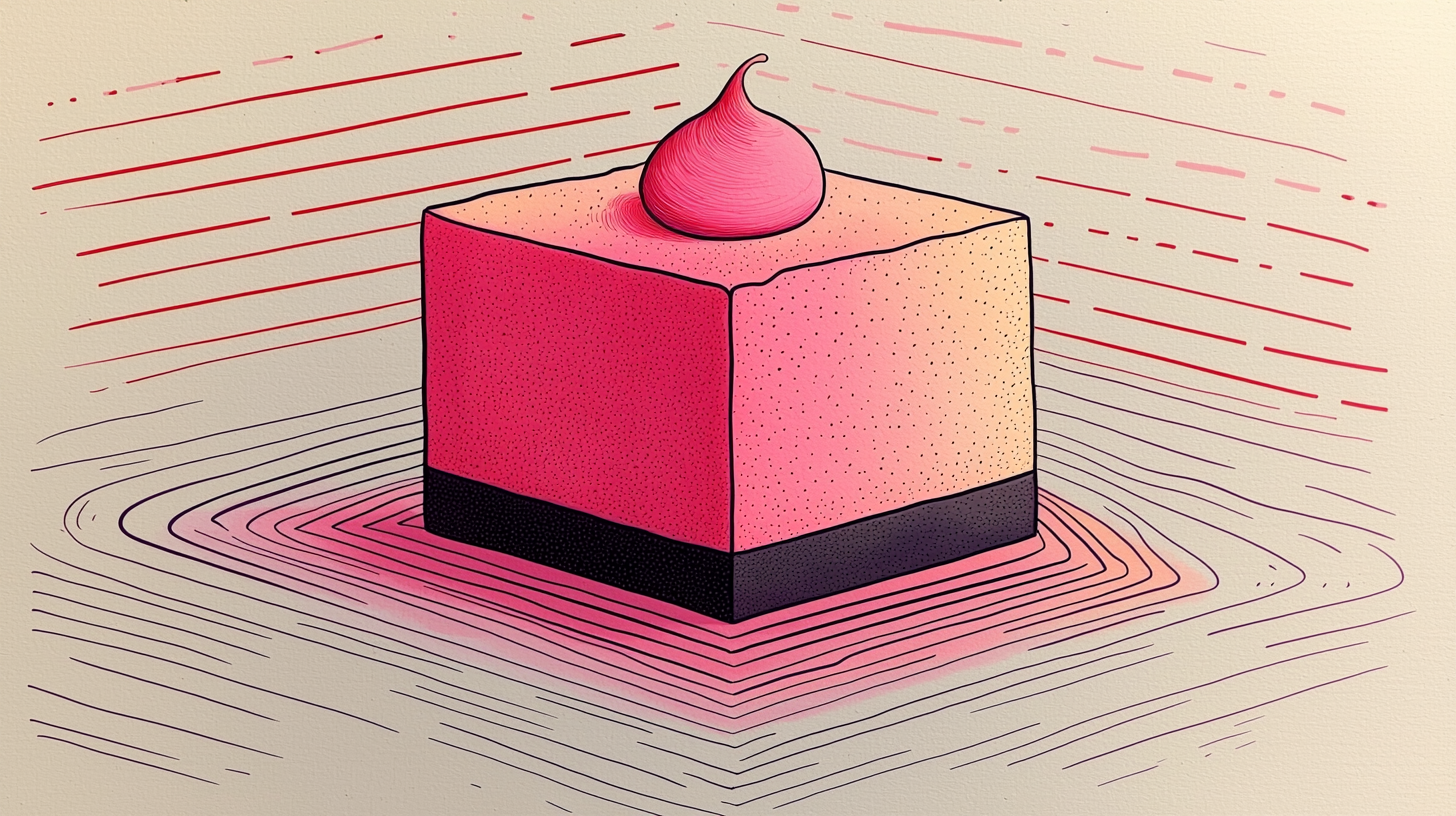
This is where mastery of the Midjourney API comes in, with –no cream we can tell Midjourney to exclude specific items.
Midjourney is a powerful tool and there are a range of similar commands that are worth exploring via the documentation and Youtube if you’re serious about improving your prompt engineering skills.
5) Iterate!
The key to good generated assets are the variations along the way! I often find that Midjourney gets close… but you might not know what is lacking. That’s where variations come in!
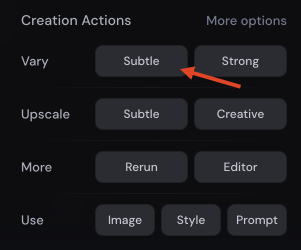
Choose one of the four images that it gave you back and iterate! Clicking iterate in the bottom right hand ‘Creation Actions’ menu will give you four resulting options.
Use upscale when you’re happy with what you want, and want a higher resolution.
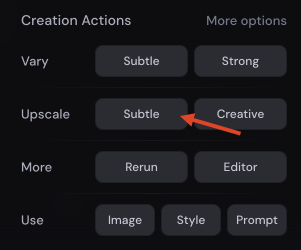
Also try experimenting with your prompt! Remove or add sections that don’t align with your vision. In my case, Midjourney got close with a lammington representation, but I didn’t want any cream.
Conclusion
Generative AI tools like Midjourney lower the barrier of digital design by offloading creative workflows to AI. Identifying and optimising these workflows are the key for staying ahead in the rapidly changing AI landscape.
The new Midjourney.com webapp makes difficult tasks easier with more intuitive access to common operations like adding reference images, generating variations, and upscaling.
I hope you find this workflow useful!